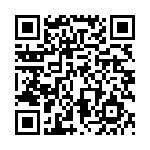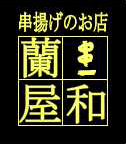振り込め詐欺の母国・ナイジェリア
世界中に電子メールを送って「あなたの知らない財産を受け取りたければ金を振り込んでください」という詐欺を行っているナイジェリアでは、イギリスを訪問する旅行者に「スリに気をつけてください」と注意を促しているらしい。
ある調査では世界で7番目に堕落した国であると言われているナイジェリアに非難されるイギリスも問題であるが、どうやらイギリスでのナイジェリア人の被害が増加しているのは確かなようである。
ちなみに、ナイジェリアの電子メール詐欺は、石油と並んで同国の重要な外貨獲得手段となっているらしい。石油はアフリカ最大の産油量であることを考えると、詐欺で得た利益というのは恐ろしい額になっているはずである。
さすがに世界中にメールを送りつけているだけのことはあるが、世界的に振り込め詐欺に引っ掛かる人がたくさんいるというのも驚きである。
(引用)
Beware of conmen in UK, Nigeria tells citizens?|?Top News?|?Reuters.co.uk
LAGOS (Reuters) - Crime-infested Nigeria, famed for its email scams, has warned citizens travelling to Britain to watch out for conmen who use tricks to rob or rip off visitors.
Fraudsters in Britain might pour tomato juice or other substances on your dress and then offer to help remove it, robbing you in the process, the information ministry warned in its first-ever travel advisory obtained by Reuters on Thursday.
The conmen, who are mainly white, but also include east Europeans and north Africans, might also pretend to pick up an object from under a potential victim's seat to distract his attention while he robs him, it added.
"Nigerian travellers are hereby warned not to carry large amount of money on their body and ensure that their air tickets, passports, expensive wrist-watches as well as trinkets are securely hidden," the advisory said.
Nigeria itself has seen a sharp rise in violent crime since President Olusegun Obasanjo was elected in 1999, ending 15 years of military rule.
Africa's top oil producer, ranked by Berlin-based sleaze watchdog Transparency International as the world's seventh most corrupt country, is also famous for junk mail scams.
The advisory said favourite British blackspots include airports, high streets, markets, hotels and restaurants, shopping centres, tube stations, bus stops and buses.
It said the Nigerian High Commission in the United Kingdom had reported an upsurge in crime and assault against Nigerians visiting London in the recent past.
There is no evidence that Nigerians are being specially targeted, "but ostentatious dressing, spending and ancillary actions may identify a target," the advisory said.
Nigeria's so-called 419 email scam, named after an article in Nigeria's criminal code, was so successful that campaigners said it became the country's main foreign exchange earner after oil.
The fraud swindled hundreds of millions of dollars every year from people across the globe, who respond to emails promising them a share of non-existent fortunes in return for an advance fee.











